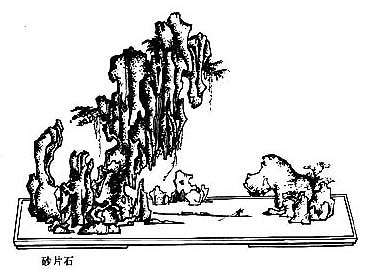論
語
Lun Yu 
 – The Analects of Confucius
– The Analects of Confucius
The Master discusses with his disciples and unveil his preoccupations with society. Tr. Legge (en), Lau (en) and Couvreur (fr).
                                       | |||||||||||||||||||||||||||||||||||||||||||||||||
| |||||||||||||||||||||||||||||||||||||||||||||||||
 |  |
Lunyu XIV. 13. (360)
The character of Kung-shû Wan, who was said neither to speak, nor laugh, nor take.
1. The Master asked Kung-ming Chiâ about Kung-shû Wan, saying, "Is it true that your master speaks not, laughs not, and takes not?"
2. Kung-ming Chiâ replied, "This has arisen from the reporters going beyond the truth. – My master speaks when it is the time to speak, and so men do not get tired of his speaking. He laughs when there is occasion to be joyful, and so men do not get tired of his laughing. He takes when it is consistent with righteousness to do so, and so men do not get tired of his taking." The Master said, "So! But is it so with him?"
Legge XIV.14.
The Master asked Kung-ming Chia about Kung-shu Wen-tzu, 'Is it true that your Master never spoke, never laughed and never took anything?'
Kung-ming Chia answered, 'Whoever told you that exaggerated. My Master spoke only when it was time for him to speak. So people never grew tired of his speaking. He laughed only when he was feeling happy. So people never grew tired of his laughing. He took only when it was right for him to take. So people never grew tired of his taking.'
The Master said, 'Can that really be the right explanation for the way he was, I wonder?'
Lau [14:13]
Le Maître, parlant de Koung chou Wenn tseu1 à Koung ming Kia2, lui dit : « Est-il vrai que votre maître ne parle pas, ne rit pas et n'accepte rien ? » Koung ming Kia répondit : « Ceux qui lui ont fait cette réputation ont exagéré. Mon maître parle, quand il est temps de parler, et ses paroles ne fatiguent personne. Il rit quand il est temps de se réjouir, et son rire ne déplait a personne. Il accepte, quand la justice le permet, et personne n'y trouve à redire. » Le Maître reprit : « Est-ce vrai ? Cela peut-il être vrai ? »
Couvreur XIV.14.

The Analects of Confucius – Lun Yu XIV. 13. (360) – Chinese on/off – Français/English
Alias the Lunyu, the Lun Yü, the Analects, les Entretiens du maître avec ses disciples.
The Book of Odes, The Analects, Great Learning, Doctrine of the Mean, Three-characters book, The Book of Changes, The Way and its Power, 300 Tang Poems, The Art of War, Thirty-Six Strategies
Welcome, help, notes, introduction, table.
Index – Contact – Top
